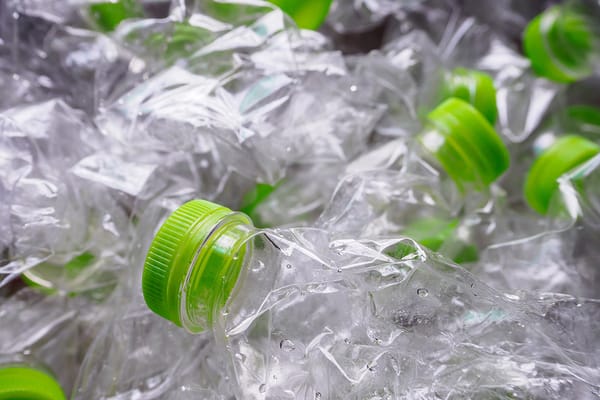A new tax aimed at encouraging businesses to use recycled plastic in their plastic packaging will come into force at the beginning of April. Retailers and other businesses that make or import plastic packaging are being encouraged to get ready now.
The Plastic Packaging Tax, first announced in 2018, will be charged on plastic packaging made in or imported into the UK that does not contain at least 30% recycled plastic. It will be charged at a rate of £200 per tonne from April 1. The tax applies to plastic packaging that is already filled with goods, as well as to standalone packaging.
The 30% recycled plastic threshold applies separately to each component – for example the lid, label and bottle of a drinks bottle. It also applies to packaging made of more than one material but that is mostly plastic, by weight. Businesses that manufacture or use more than 10 tonnes of plastic packaging a year should register for the tax, whether their plastic packaging is 30% recycled or not. Those that use less than 10 tonnes will be exempt from the new tax.
Judith Kelly, deputy director of HMRC’s environmental taxes policy team, says: “Since the government announced the introduction of a new Plastic Packaging Tax back in 2018 to help tackle the pressing global issue of plastic pollution, we’ve been working closely with the industry on the design of the tax, which comes into force on 1 April 2022.
“This is the first tax of its kind aimed at incentivising businesses to use recycled plastic in the production of plastic packaging – those that use more than 30% recycled plastic will not pay any tax. If you manufacture, import or purchase plastic packaging, including goods purchased in plastic packaging, you need to familiarise yourself with the tax and establish if you need to register and account for the tax.”
Businesses can check here to see if they need to register. For a step by step guide covering whether a business’ packaging is within the scope of the tax, and whether businesses need to register and account for the tax on the packaging they manufacture or import, email indirecttaxdesign.team@hmrc.gov.uk. Webinars are being held during February to advise businesses on these issues. To register for the ‘Introduction to Plastic Packaging Tax’ webinar click here, and for the ‘Plastic Packaging Tax: Administrative and Technical Aspects’ webinar click here. Recordings of both webinars will be available afterwards, while previous webinars are available here.
Kelly adds: “Recycled plastic has a carbon footprint than can be up to four times lower than that of virgin plastic – introducing this tax will provide a clear economic incentive for businesses to use recycled plastic in the production of their packaging. This will also ensure we reduce the amount of plastic packaging that ends up in landfill. We’re working together with industry groups to help businesses understand their obligations and prepare for the tax. There are lots of things that you can start doing now, such as reviewing your records and taking any necessary steps to ensure that you can accurately verify the source and composition of your plastic packaging. You may need to work with other businesses in your supply chain to do this.
“You can also be checking the recycled plastic content of the plastic packaging you manufacture, import or use, and considering if you can switch to alternatives which are made with a higher percentage of recycled plastic. Unless you can prove otherwise, the approach will be to presume that the plastic in question contains less than 30% recycled plastic and will be subject to the tax. If you are a business that purchases plastic packaging from a UK manufacturer or importer, you should carry out due diligence checks on your suppliers to ensure the tax has been properly accounted for on any packaging you purchase. If you export goods in plastic packaging, you may benefit from sharing information back up the supply chain.”
HMRC recommends businesses save this guidance link and visit regularly to follow developments and to ensure business is ready for April 2022.









